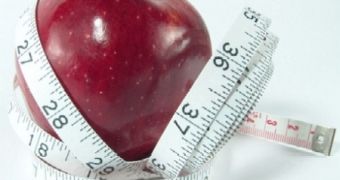Crash diets are not uncommon, no matter how much nutritionists and health experts warn of the health risks they entail in the long run and the almost certain weight re-gain once the slimmer comes off them. Still, nutritionist and author Dr. Susan Roberts says crash dieting can lead to greater weight loss without the unhealthy side-effects: if done right and combined with exercise and a change in lifestyle.
However, Roberts too emphasizes that the kind of crash diets advertised online (pills or beverages that act as hunger or appetite suppressants and do not allow for satisfying meals) and the by-now infamous purges and detox regimes are not the answer to sustainable weight loss. According to her, the secret is in cutting down enough calories and maintaining the initial change once the diet is over as well. This way, while the diet can be perceived as the “crash” type, the fact that it includes the necessary nutrients will also make it more bearable and actually doable in the long run, in the sense that it will impose changes in our approach to food.
“How do you avoid common concerns like weight-loss plateau (when the body adapts to the lower calorie intake and slows down the metabolism accordingly)? The answer is simple: by cutting enough calories. Many popular diets don’t cut as many calories as is needed, because they don’t deal with the hunger factor well enough to go further. […] The first principle of successful dieting is to get calories low enough to cause ongoing, serious fat loss. In practice, this means getting daily calorie intake down to 1,200 calories a day if your starting weight is 8.5 to 11 stone, or to 1,800 a day for those weighing 14 to 17 stone.” Dr. Roberts recommends.
The key to successfully cutting down enough calories is, understandably, knowing what foods to avoid and what not. As Dr. Roberts also points out, slimmers usually believe that a restrictive diet is bound to work wonders, but they’re often deterred by the very fact that it’s so boring and unpleasant. Eating fruit, fish and foods high in fiber, on the other hand, can offer better results in terms of weight loss, while also allowing for variety – which would make a diet of this type pleasant enough to be eventually adopted as a new lifestyle.
“Crash dieting can work, but there is a threshold. It’s a physiological fact that the human body is capable of losing only a maximum of about three pounds of actual fat per week, even if you eat nothing at all. Greater weight losses than this might occur for a week or two if you put yourself through the wringer of fruit juice fasts, purges, or harsh detox programs, but you won’t lose any more fat – just water, intestinal contents and sometimes muscle. That’s the kind of weight that will bounce right back after a good party or two. The bottom line is that regular workouts are great for health and strength, but if you want to lose weight, the really important thing is what you eat. Stock up on the good foods that help with weight control, and then keep those calorie counts down to make weight loss a reality this time.” the nutritionist explains.

 14 DAY TRIAL //
14 DAY TRIAL //